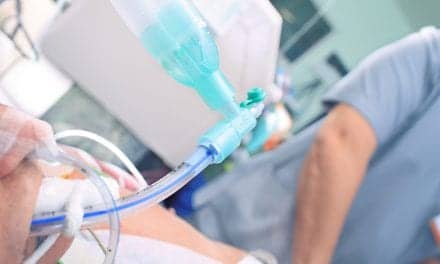A three-day course of remdesivir reduced hospitalization risk or all-cause mortality from COVID by Day 28 by 87%, and reduced risk of COVID medical visits or all-cause mortality by Day 28 by 81%, compared to placebo.
The results have been published in the New England Journal of Medicine (NEJM) and have been submitted to the Food and Drug Administration (FDA) for the potential use of Veklury in earlier stages of disease, including prior to hospitalization.
There was no difference observed in nasopharyngeal SARS-CoV-2 viral load up to Day 7 between groups, indicating that upper respiratory viral loads do not reliably predict treatment outcomes in COVID-19. In the study, no deaths were observed in either arm by Day 28.
Remdesivir Reduced Hospitalization Risk
The study includes new subgroup analyses which showed consistent efficacy of Veklury for patients irrespective of their key risk factors for severe COVID-19. Participants with comorbidities such as diabetes, obesity, and hypertension had reduced risk of COVID-19-related hospitalization by Day 28 with Veklury treatment. Additional subgroup analyses showed among participants with cancer, chronic lung disease, and cardiovascular disease all instances of COVID-19-related hospitalization occurred in the placebo group. In a post-hoc analysis of participants who completed a baseline influenza patient reported outcome (FLU-PRO Plus) questionnaire any time prior to or on the first day of treatment, those receiving Veklury had a 92% greater probability of symptom alleviation by Day 14 compared to those receiving placebo.
The use of Veklury for the treatment of non-hospitalized patients in the United States with three days of dosing is investigational, and the safety and efficacy for this use and dosing duration have not been established or approved by the FDA. In the U.S., Veklury is indicated for adults and pediatric patients (12 years of age and older and weighing at least 40 kg) for the treatment of COVID-19 requiring hospitalization. Veklury is contraindicated in patients who are allergic to Veklury or any of its components; please see below for additional Important Safety Information for Veklury.
The safety profile was similar between Veklury and placebo across the variety of outpatient settings in this trial, with the most common treatment emergent adverse events (≥5%) in patients taking Veklury being nausea and headache. Adverse events assigned by investigators to be related to study drug during the blinded trial occurred in 12% of the patients receiving Veklury and 9% of patients receiving placebo. Fewer patients in the Veklury group experienced serious adverse events (2%) than in the placebo group (7%). Of the 279 participants who received Veklury, no new safety signals were identified. One death was observed in the study at Day 59 (participant on placebo); no deaths occurred in either arm of the study by the Day 28 primary endpoint.
“These data provide evidence that a three-day course of remdesivir could play a critical role in helping COVID-19 patients stay out of the hospital. While our hospitals are ready to assist patients in need, prevention and early intervention are preferable to reduce the risk of disease progression and allow patients not requiring oxygen to recover from home when appropriate,” said Robert L. Gottlieb, MD, PhD, Cardiologist at Baylor University Medical Center and Baylor Scott & White Research Institute, and primary author of the NEJM article. “Remdesivir is one of the tools frontline healthcare workers rely on to effectively treat hospitalized patients with COVID-19 and early antiviral therapy with remdesivir would be a natural extension of the continuum of care that begins with primary prevention efforts centered on vaccination. Antivirals, like remdesivir, are routinely administered as a combination of therapies to help target a virus at multiple steps in its replication process. With this in mind, as additional treatment options become available, short-course IV therapy could potentially be a complementary option in settings where outpatient infusions are available.”
“We welcome these findings, which further demonstrate the high efficacy of Veklury and support the important role it plays in helping patients with COVID-19. We’re proud that Veklury remains the antiviral standard of care for hospitalized patients, helping to prevent disease progression and accelerate patients’ recovery,” said Merdad Parsey, MD, PhD, Chief Medical Officer, Gilead Sciences. “The promising data from this study also gives us even greater encouragement in pursuing a potential best-in-class oral therapy for COVID-19, which is based on the same antiviral mechanism of action as remdesivir.”
In the study, the authors note that if approved for this use, treatment with Veklury IV in non-hospitalized patients could provide another important option for COVID-19 treatment for patients at high risk of disease progression, as the efficacy of a three-day course of Veklury is qualitatively similar to that seen in clinical studies of single dose neutralizing monoclonal antibody (nmAb) therapies. The authors also note that combination therapies which include a direct-acting antiviral at an early stage of disease may be synergistic in the highest risk patients.
Veklury is a direct-acting antiviral that can be shipped and stored lyophilized at room temperature and does not require prolonged infusion times. Veklury targets the highly conserved viral RNA-dependent RNA polymerase, thereby retaining efficacy against existing SARS-CoV-2 variants of concern identified to date.
Remdesivir Reduced Hospitalization Risk










